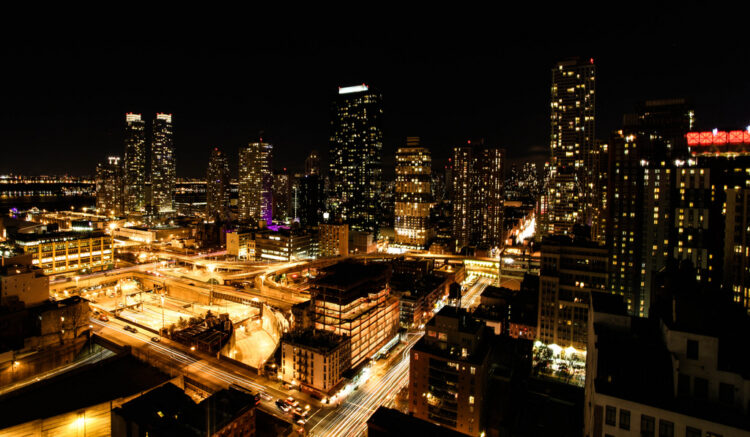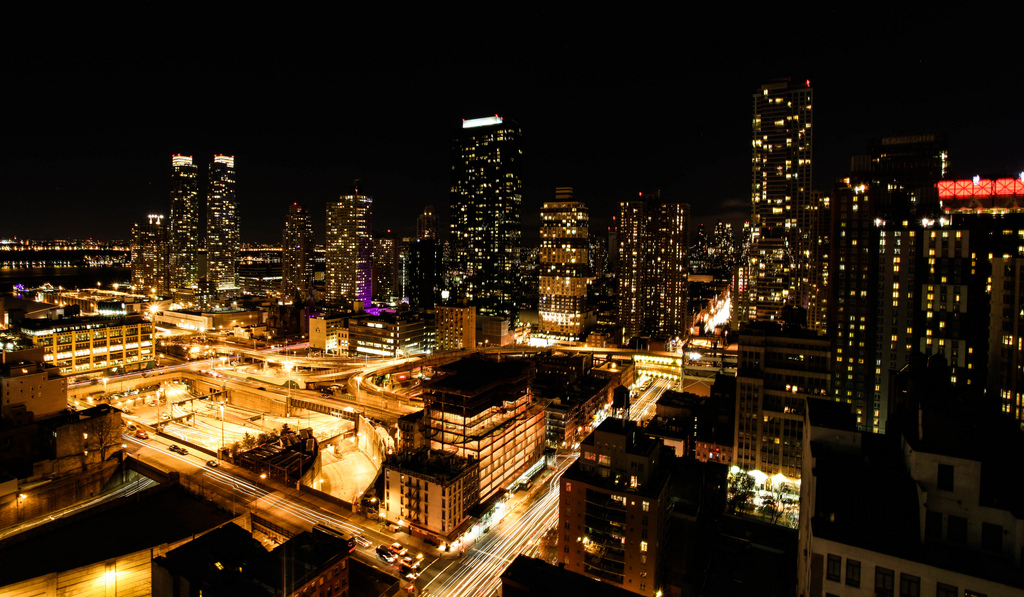If there was a time that the midtown area of Manhattan was ever considered cool, I have never heard about it. It has some awesome architectural marvels; the major commuter rails systems feed into there; and the shopping and entertainment options are plentiful. But the word “cool” has never come to mind.
Cool is the Village or the Lower East Side or Soho. But stodgy and stiff Midtown could never shake the pall of uncool. It’s where people work for the man and where tourists wander aimlessly armed with cameras and maps. It was not for “real” New Yorkers.
That was why it seemed like such a disconnect when Facebook opened its office in NYC—instead of somewhere in the “Silicon Alley” corridor, they moved into a building right in the heart of unhip Midtown East next to Grand Central Station.
This is the same place that tens of thousands of miserable commuters trek through every workday on winding trains from the suburbs, avoiding the throngs of tourists taking pictures of the ceilings. Outside of two overpriced Irish bars across the street, the options for fun and interesting are few and far between.
But Facebook moved there, so it begs the question: can Midtown be where the cool kids hang out? We are about to find out, and much of that is ironically due to Facebook moving out and relocating.
I recently attended the open house of a new co-working space called Grand Central Tech. It is one of those hybrids, a “mixelerator.” By not taking equity or charging rent, but still providing mentorship, services and a ready pool of local interns, these mixelerator are a slightly different breed of the traditional tech startup accelerator program.
While “free” is clearly a draw, no one seemed the slightest bit concerned about location. For many, the location was actually just as convenient, or more so, as being in the startup districts of Madison Park-Union Square-Soho corridor or Brooklyn’s Dumbo.
The original NYC tech community of the ‘90s was centered around 23rd Street and quickly became known as “Silicon Alley.” Today’s center of startup activity in NYC has its legacy there, so obviously much of the activity coalesces in that area. For a long time, the rents were depressed, especially after the 2008 Wall Street crash, and, even before that, many NYC-based VC firms, such as First Round, First Mark and Union Square Ventures, located themselves here.
Thus, many of the post-dot-com 1.0 startups plopped themselves in Silicon Alley for the convenience. Over the course of a decade, a community formed, and what emerged was an ecosystem of startups, investors, service providers, accelerators and more.
There is something to be said for wanting to be in the midst of that environment. I currently sit in Work-Bench in the Union Square area and routinely run into people I know on the streets and in restaurants and cafes. It is maximum serendipity and incredible convenience. It also helps that it is generally a younger, hipper area, with plenty of options and easy transit access.
However, what started in this lone corridor has slowly spawned new pockets of startup activity.
Brooklyn has seen a flurry of interest, as more people are moving there and starting companies nearby in Dumbo and Williamsburg. The far Soho West region has NYU Poly Tech, with their massive Varick Street incubator as well as a huge WeWork location nearby.
Harlem is starting to see action with The Harlem Garage and Harlem Biospace. If I had the time, I would map out all of the accelerator, incubator and co-working spaces across NYC from the list I created. Suffice to say, that list is steadily expanding.
Which gets us back to Midtown. So Facebook decided to ditch Midtown and take up residence in the AOL building on 770 Broadway. It is a good spot and it will work well for Facebook. The reason this actually helps Midtown, though, is Facebook left a large amount of space behind.
At the same time, two enterprising entrepreneurs Charles Bonello and Matt Harrigan were searching for a permanent home for their tech startup accelerator program. In a confluence of circumstances, they connected with the Milstein family who happened to own the building Facebook was vacating. Thus a plan was hatched to occupy the space with the accelerator and use the leftover space to create a general co-working site.
It’s a plan that just might work. There are some interesting projects in the works to take advantage of the open real estate in the midtown area and convert it into spaces for startups and small businesses. Before, the big hurdle was cost, but with the existing “startup hoods” experiencing price pressure, there is an opportunity to come in with a better-priced offering.
While nothing has been said on this front, I would suspect the co-working offices are going to be very aggressively priced. If the free one-year ride for Grand Central Tech is any indication, there is a willingness to do what it takes to fill space. Some may complain about competing on price, but for startups on shoestring budgets, price is always a consideration when limited funds have to compete for higher salaries, perks and benefits to snag quality talent.
Midtown has already started to see the beginnings of a startup incursion.
AlleyNYC landed in the midst of the Fashion District and has grown into an impressive co-working location and events space. WeWork opened a beautiful location across from Bryant Park—I have to say the park is pretty cool. More and more startup activity is happening in Midtown, such as First Growth Venture Network events and the NY Enterprise Technology Meetup. Then there is the growing number of other startups that have taken up cheap subleases in the area over recent years.
The other thing, though, that will play into changing the face of Midtown is demographics. Sure, people are moving into cities, but a ton of talent is also living outside of NYC and will continue to migrate out to suburbs given the cost of owning in NYC compared to elsewhere.
Being located near the big transit hubs therefore makes a ton of sense for startups that are entering into their growth phase and need to cast a wider net for talent. And on the other hand, big business is still, by and large, located in Midtown. There is something to be said for being close to your customers. With more enterprise tech and vertically-oriented startups launching in NYC, Midtown does not seem like such a foreign location when that is where you are spending more time to see customers.
This is not my declaration that Midtown is cool. I will say, however, it gets unfairly dinged by startup founders when, in fact, there could be benefits to locating there.
I think it will be interesting to see how this plays out over the next year or two, but I suspect more folks are going to start seriously looking at Midtown as an opportunity now that the usual startup hoods are becoming overheated. Grand Central Tech is just the early volley into this experiment.
This article was originally published on Strong Opinions, a blog by Birch Ventures for the NYC tech startup community.
Image credit: CC by Stefan Kohli




